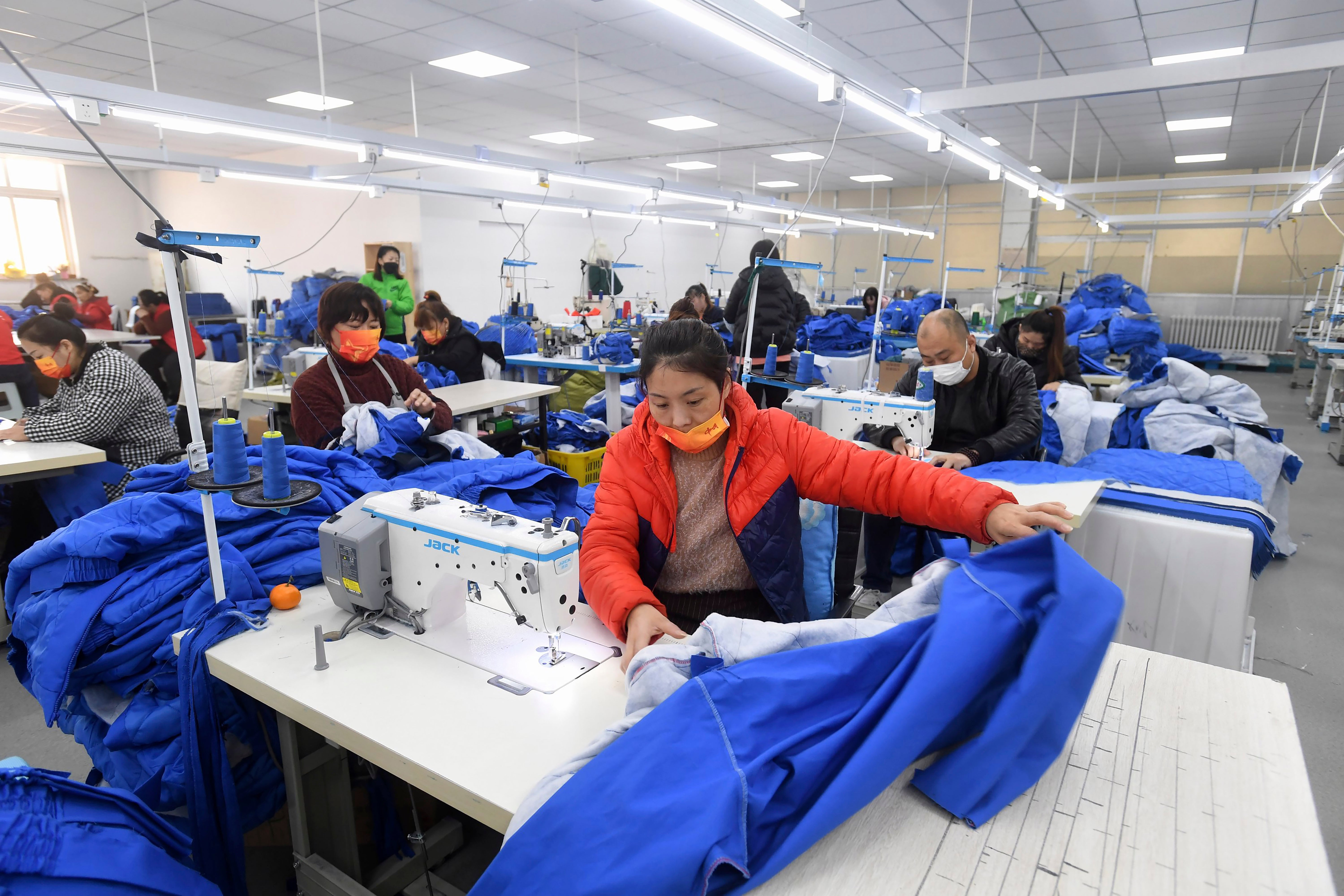China economy slows as virus outbreaks disrupt recovery
China has reported its economy slowed in November, buffeted by coronavirus outbreaks, weak demand and supply chain disruptions

Your support helps us to tell the story
From reproductive rights to climate change to Big Tech, The Independent is on the ground when the story is developing. Whether it's investigating the financials of Elon Musk's pro-Trump PAC or producing our latest documentary, 'The A Word', which shines a light on the American women fighting for reproductive rights, we know how important it is to parse out the facts from the messaging.
At such a critical moment in US history, we need reporters on the ground. Your donation allows us to keep sending journalists to speak to both sides of the story.
The Independent is trusted by Americans across the entire political spectrum. And unlike many other quality news outlets, we choose not to lock Americans out of our reporting and analysis with paywalls. We believe quality journalism should be available to everyone, paid for by those who can afford it.
Your support makes all the difference.China reported Wednesday that its economy slowed in November, buffeted by coronavirus outbreaks, weak demand and supply chain disruptions.
Retail sales were weaker than in October and inflationary pressures are complicating efforts to boost growth at a time when tighter limits on borrowing by developers are crimping construction and sales in the all-important property sector.
The Feb. 4-20 Beijing Winter Olympics will likely have “limited impact overall,” National Bureau of Statistics spokesman Fu Linghui told reporters, since pandemic restrictions are limiting travel and other activities.
Fu said the global environment was becoming “more complex and severe,” but China still expects to meet its economic targets for this year.
The new coronavirus was first reported from China and the ruling Communist Party has championed its success in containing the pandemic. Sporadic outbreaks and the emergence of new virus variants remain a constant challenge both for public health policies and the country's economic recovery.
Concerns have been raised over the economic price paid for keeping the virus under control through repeated lockdowns and other strict measures, including limits on international travel.
The economy grew at an unexpectedly slow 4.9% annual pace in July-September, down from 7.9% in April-June.
In November, retail sales grew 3.9% from a year earlier, down from 4.% the month before. Industrial production picked up only slightly, growing 3.8% last month compared with 3.5% in October.
Leaders have promised tax cuts and support for entrepreneurs after the campaign to rein in surging corporate debt caused bankruptcies and defaults among real estate developers.
Investors are waiting to see what happens to Evergrande Group, a developer analysts say looks increasingly likely to default on $310 billion of debt. Smaller developers have defaulted on millions of dollars of debt or gone bankrupt.
Meanwhile, a crackdown on what regulators say is improper behavior by Chinese tech giants including Alibaba Group, the world’s biggest e-commerce platform, has prompted jittery investors to knock more than $1 trillion off their share prices abroad.
Fu appeared to brush aside such concerns.
“With the coordination of pandemic prevention and control and economic and social development, as well as the effective implementation of macro policy adjustments, the main goals of economic and social development for this year are expected to be achieved," he said. “There is still strong support for the economy to overcome difficulties and remain stable next year.”